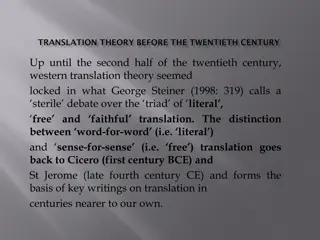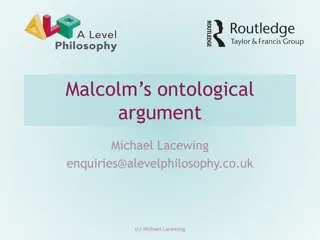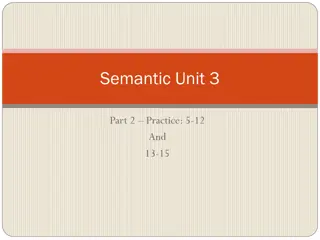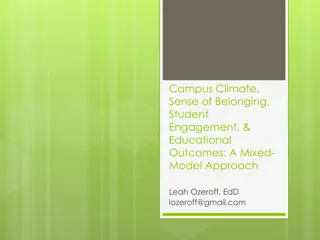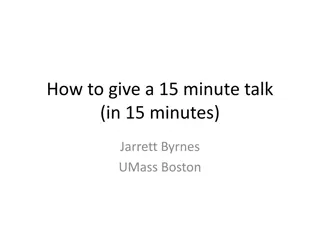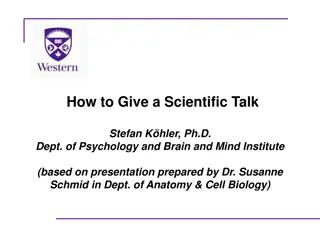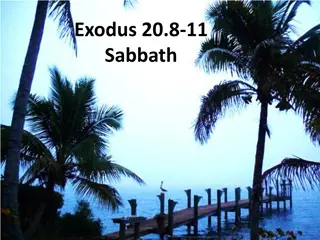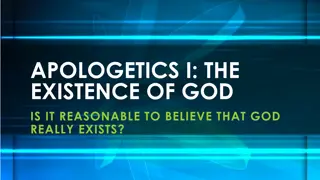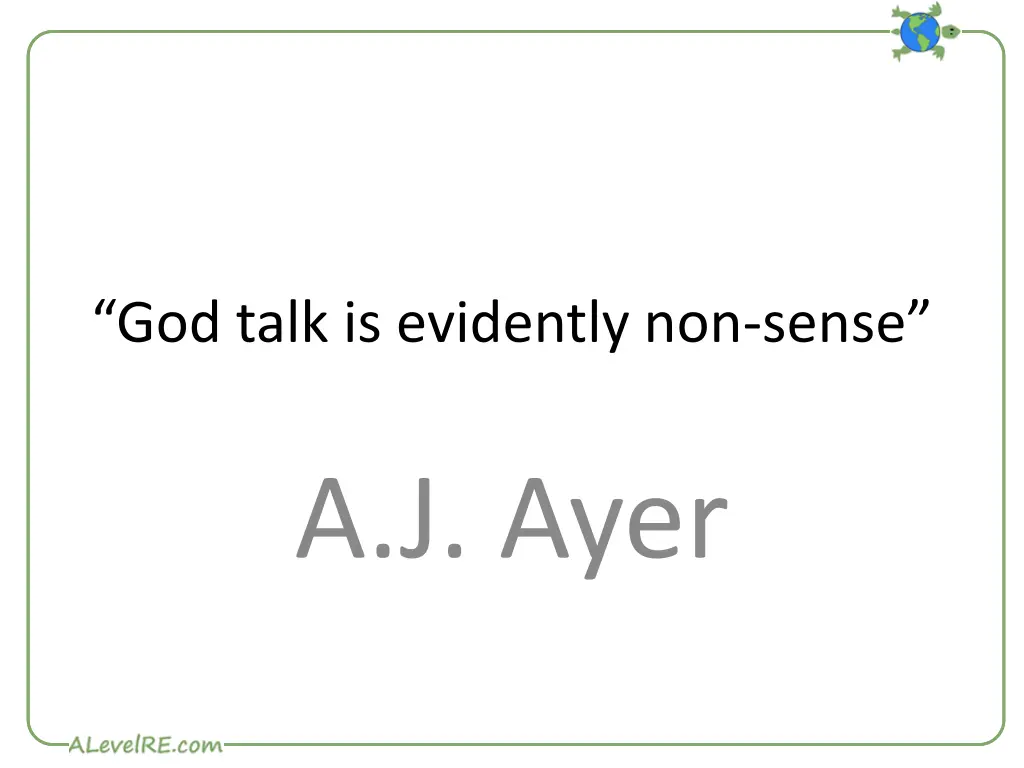
Understanding Religious Language: A Critical Examination
Explore the critique of religious language by A.J. Ayer, a logical positivist, and member of the Vienna Circle. Ayer dismisses all claims about God, including atheistic ones, as they fail to meet the Verification Principle. Discover why assertions about God are considered meaningless and impossible to prove in this thought-provoking analysis.
Download Presentation

Please find below an Image/Link to download the presentation.
The content on the website is provided AS IS for your information and personal use only. It may not be sold, licensed, or shared on other websites without obtaining consent from the author. If you encounter any issues during the download, it is possible that the publisher has removed the file from their server.
You are allowed to download the files provided on this website for personal or commercial use, subject to the condition that they are used lawfully. All files are the property of their respective owners.
The content on the website is provided AS IS for your information and personal use only. It may not be sold, licensed, or shared on other websites without obtaining consent from the author.
E N D
Presentation Transcript
God talk is evidently non-sense A.J. Ayer
Ayer is a logical positivist a member of the Vienna Circle. Any claim made about God (including Atheistic) is dismissed as it fails to pass the Verification Principle Statements about God are neither tautological, mathematical nor empirical. Ayer defends his weaker version of the VP in dismissing claims about God and in doing so presents an attack on the argument from Religious Experience.
The very nature of God means that God is beyond human understanding / comprehension. truth claims regarding God are therefore impossible / meaningless. Knowledge / truth requires proof analytic or synthetic. Religious experiences cannot be used as evidence to support God s existence because they too cannot be empirically verified.
Religious language the Verification Principle What is language about God being used to do? Are the claims made about God intended to be universal? Does the language I use to talk about God need to be cognitive? Does a non-cognitive approach to religious language fair better? What about Anti-Realism? If the claims I make about God are true for me, does it matter if they cannot be objectively proven? Can God talk be meaningful in any particular context ? (Wittengenstein)
Religious Experience as evidence of the existence of God? Swinburne s cumulative approach to arguing God s existence can be seen as using Ayer s Weak version of the VP (establishing the probable truth via observation) Principle of Credulity would suggest that Rel Exps are genuine and therefore provide empirical evidence to support the existence of God. Rel Exps are Subjective though and so Ayer still rejects them.
Impact on religion & human experience The only language which can have any meaning is non-cognitive / anti realism This limits the contexts in which language can be used no room for inter religious dialogue, no room for philosophical debate into the nature of God On what basis can I claim to be right and the next person be wrong? (especially if they are considering flying planes into tall buildings) Does religious belief need a firmer basis than that s just what I think is anti realism an empty husk?





